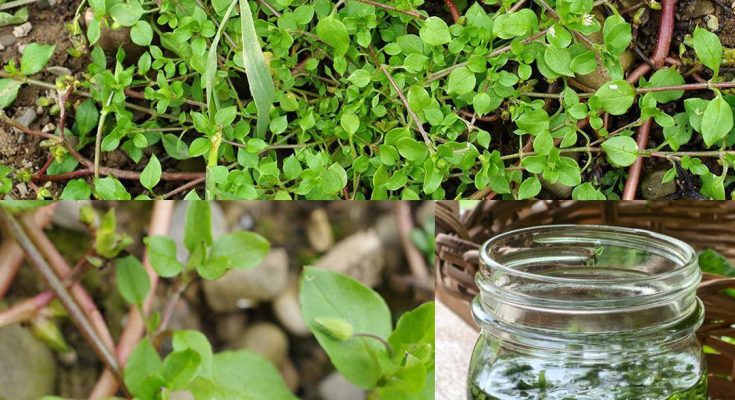Chickweed, or Stellaria media, a humble yet powerful plant, often overlooked, is a treasure trove of health and medicinal benefits waiting to be discovered. This versatile herb, with its delicate white flowers and vibrant green leaves, is not just a common sight in gardens and meadows but also a potent natural remedy backed by centuries of traditional use and modern research. In this article, we will delve into the myriad of benefits that chickweed offers, from its nutritional value to its healing properties, and explore how this unassuming plant can be a significant addition to holistic wellness practices. Whether used in teas, salves, or culinary creations, chickweed emerges as a natural wonder, offering solutions for various health concerns while underscoring the importance of nature’s gifts in our daily lives.

Health and Medical Benefits of Chickweed
- Nutritional Support: Chickweed is rich in nutrients like calcium, magnesium, vitamin C, and vitamin A, contributing to overall skeletal and skin health.
- Anti-inflammatory and Pain Relief: Traditionally used in homeopathic and traditional medicine, chickweed can alleviate symptoms associated with rheumatism, arthritis, PMS, and various digestive and respiratory issues. It can be taken as a tea, tincture, or applied topically to inflamed joints or skin areas.
- Digestive and Gut Health: With its antioxidant properties, fiber content, and natural diuretic qualities, chickweed supports digestive and gut health. It may also aid in weight loss by impacting the intestinal absorption of fats and carbohydrates.
- Skin Health: Chickweed is renowned for its ability to treat skin conditions like eczema, psoriasis, rashes, and more, thanks to its anti-inflammatory, astringent, and emollient properties. It can be used in various forms such as salves, teas, and tinctures to soothe the skin.
- Respiratory Health: The saponins in chickweed act as natural expectorants, aiding in the treatment of coughs, colds, sinus congestion, and bronchitis.
- Wound Healing and Antiseptic Properties: Chickweed is beneficial for wound healing, reducing irritation and preventing infections when applied to cuts, burns, and grazes.
- Lymphatic and Immune Support: Containing compounds like coumarin, chickweed may benefit the lymphatic system and overall immune health.
Using Chickweed

Chickweed can be incorporated into your diet or used as a remedy in several ways:
- Infusions or Teas: For internal use, particularly for digestive and respiratory benefits.
- Topical Applications: As a poultice, salve, or compress for skin conditions and joint pain.
- Culinary Uses: Fresh leaves can be added to salads, soups, and other dishes for a nutritional boost.
Safety and Precautions
While generally safe, chickweed should be used cautiously:
- Pregnancy and Breastfeeding: Due to limited safety data, it’s not recommended during pregnancy and breastfeeding.
- Allergic Reactions: Some people might experience contact dermatitis or gastrointestinal distress from chickweed, especially those allergic to plants in the daisy family.
- Dosage: It’s important to adhere to recommended dosages, particularly when consuming chickweed as a supplement.
Sustainability
Chickweed is not endangered and is easily cultivated, making it a sustainable option for those interested in herbal remedies.

Chickweed offers a range of health benefits, particularly for skin, digestive, and respiratory health. When used appropriately, it can be a safe and effective natural remedy. However, it’s important to be aware of potential side effects and to use chickweed responsibly, especially in terms of dosage and during pregnancy or breastfeeding.



